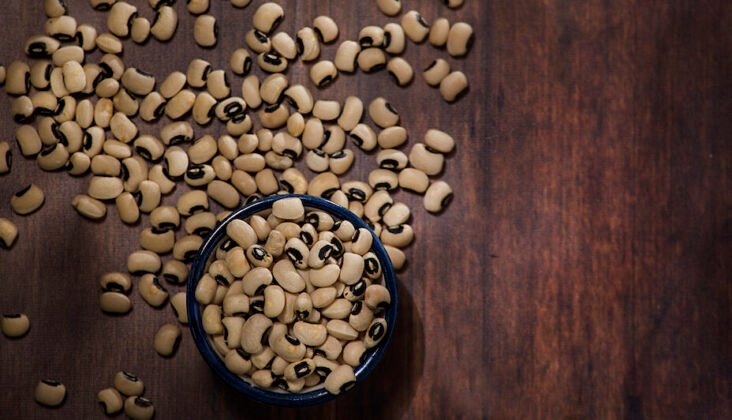[ad_1]
The gazette notification from February this year says the authority received an application from some Ghana government scientists to allow for the “environmental release” of the GM cowpea. The request was from scientists working with the Savanna Agricultural Research Institute (SARI) of the Council for Scientific and Industrial Research (CSIR). The approval will eventually allow SARI to place the GM cowpea on the market for sale and consumption.
Congratulating @ScienceAlliesGh for their outstanding outreach efforts! They collected more than 700 written comments in support of commercializing Bt cowpea in Ghana. Way to go, with GMO! @dennisgameplay @SlyviaTawiah @abigaildakoto @josephopoku1990 Reuben Quainoo pic.twitter.com/PiM9ogsE1E
— Alliance for Science (@ScienceAlly) April 22, 2022
What are GMOs?
Genetically Modified Organism (GMO) is the common terminology used to describe seed varieties that have been created through genetic engineering procedures. It is used to describe animals as well, but for the purpose of this context, we will use crops to explain what it is.
For ages, plant breeders seeking to improve crops’ resistance to stresses, such as drought, cross the crop with another variety that possesses the unique trait they want to transfer. This takes a long time, and the process is usually trial and error. With GMOs, only the gene or DNA fragment responsible for the desired trait is moved into the crop of interest by scientists using laboratory techniques. Subsequent generations of the new seeds that get planted on the field inherit the newly introduced traits.
- In South Africa, more than 85% of all corn, and 90% of all soybeans grown and consumed are GMOs.
- In the US, more than 90% of both crops grown and consumed are GMOs.
As of 2019, GMOs are grown in 29 different countries across the world. To date, there has been no evidence that the consumption of GMOs has caused any negative health effects in human or animal consumers anywhere in the world.
A defining moment for Ghana
The expected decision from Ghana’s National Biosafety Authority could go either way. Whether approval or rejection, it will be a defining moment for the GMO landscape in Ghana.
Besides the GM cowpea, field trials are also ongoing to produce Ghana’s first GM rice variety. The nitrogen-and-water-use efficient and salt tolerant (NEWEST) rice, has been engineered to require less nitrogen fertiliser, tolerate drought conditions, grow in salty soils, and still give a good yield.
Confined field trials of the GM rice at the Crop Research Institute of the CSIR in Kumasi have shown that, with just the nitrogen use-efficiency trait, it yields between 14% and 25% better than traditional varieties.
The future of this GM rice, other potential GM crops, and the future job prospects of the thousands of students pursuing agricultural biotechnology and related degrees at Ghana’s various universities will most likely be defined by what happens with the GM cowpea review process that is underway.
Nigeria became the first country in the world to put GM cowpea in the hands of farmers in 2020. It remains to be seen if Ghana will follow suit in 2022.
Benefits of GM cowpea
We are convinced that farmers who grow cowpea, and consumers generally, stand to benefit a great deal if this variety gets approval. Cowpea or beans is a popular, protein-rich staple crop that is usually cooked and eaten with other carbohydrate sources.

The crop is however highly vulnerable to the deadly Maruca pod borer pests, which sometimes cause farmers to lose 80% to 100% of their cowpea grains. To control the pest, farmers typically spray their fields with pesticides between eight and 12 times in the 12-week life cycle of the crop.
However, the genetically modified cowpea variety, into which a gene known as the ‘cry1Ab gene’ from a naturally occurring bacteria (Bacillus thuringiensis) has been introduced, is resistant to the pest. According to scientists at SARI, confined field trials have shown that the GM cowpea reduces the need to spray fields with chemicals from 8 to only 2, and offers up to 5 times higher yields due to the reduction in pest destruction.
The opportunity for choice should be allowed so farmers and consumers can make their own informed decisions.
This makes GM cowpea unique, as it helps to reduce the use of harmful pesticides in the environment. Its approval will also help farmers spend a lot less money on pesticides, improve the availability of beans in the country for consumers, and help the agricultural economy generally. The decision by farmers and farming communities on whether to grow these varieties will eventually be taken when the crops are available.
Those who do not want it may decline to grow it, but without this requested approval by SARI, the opportunity for those who may want to use it will not even be available. The opportunity for choice should be allowed so farmers and consumers can make their own informed decisions. After all, some of the farmers have in the past clamoured for this variety and it will only be fair for them to be given the chance to try it.
What’s next?
The National Biosafety Authority is expected to respond to the application by SARI for approval of the GM cowpea latest by August 2022. If the response is positive, the variety will then go through the regular approval procedures that non–GM crops go through at the ministry of food and agriculture to allow for its final commercialisation, so it becomes available to farmers and consumers.
[ad_2]
Source link
